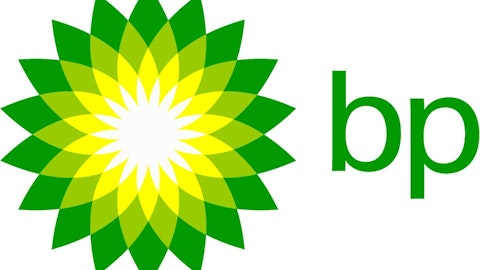
Is it the oil companies?
Or perhaps government subsidies are somehow to blame?
Or is it Iran, and its vow to ratchet up oil prices to $100 a barrel, and stick them there?
One thing’s for certain. Two factors working to keep the price of gas high are your own state and federal representatives. Between federal gasoline taxes of $0.18 per gallon, and state taxes that average $0.25 per gallon, Congress and your local version of it are directly responsible for about $0.43 out of every $3.66 you pay at the pump — 11% of the retail price.
And that’s just the average. Depending on where you live, the taxes can be lower …
| State | Gas Tax Per Gallon |
|---|---|
| Georgia | $0.08 |
| Alaska | $0.08 |
| New Jersey | $0.11 |
| Wyoming | $0.14 |
| Missouri | $0.17 |
| Oklahoma | $0.17 |
| South Carolina | $0.17 |
| Mississippi | $0.18 |
| Virginia | $0.18 |
| Alabama | $0.19 |
| New Mexico | $0.19 |
… or quite a bit higher:
| State | Gas Tax Per Gallon |
|---|---|
| Minnesota | $0.29 |
| Kentucky | $0.30 |
| Oregon | $0.30 |
| Maine | $0.31 |
| Pennsylvania | $0.32 |
| Rhode Island | $0.33 |
| Wisconsin | $0.33 |
| West Virginia | $0.35 |
| Washington State | $0.38 |
| North Carolina | $0.38 |
| California | $0.38 |
Of course, drivers in California can take comfort in knowing that, even if they’re paying nearly five times the gas taxes of their fellow citizens in Georgia, at least their roads are five times less congested, right? Right?
“All politics are local.” So are many taxes and regulations
Now, high state gasoline taxes are only part of the reason why states such as California and Hawaii, for example, have acquired a reputation for super-premium gas prices. In Hawaii’s case, high gas prices come with the territory — specifically, territory that’s stuck on a bunch of islands, far removed from regular U.S. pipeline routes.
In California’s case, environmental regulators have mandated the use of a specific gasoline blend aimed at cutting smog. The small-batch production of this gasoline blend doesn’t lend itself to efficiencies of scale as well as more plebeian blends do. Complicating matters further, the limited number of companies who do produce it have a certain amount of pricing power, owing to the lack of competition in production. In California, just five companies — Chevron Corporation (NYSE:CVX), Shell, BP plc (ADR) (NYSE:BP), Valero Energy Corporation (NYSE:VLO), and ConocoPhillips (NYSE:COP) — own more than 70% of the market for this superfuel.
Still, taxes are definitely a key factor in keeping gas prices high — and they’re getting more important by the day.
Follow the money
See if you can track the legislative logic here.
We all know that high gas prices lead to less gasoline usage. That’s just Economics 101, and borne out by the facts. Over the past seven years, America’s oil consumption (two-thirds of which goes to gasoline) has fallen by 9%. Part of that’s due to higher fuel efficiency in gas-burning cars, part to more use of electric cars; but a large part is simple price disincentivization to buy and burn gas.
Problem is, states depend on people buying gas — and paying gas taxes — to fund their highway and other transportation programs. As a result, there’s been a movement among several states to switch from charging flat-rate gas taxes, to taxes charged as a percentage of purchase price. California is one state that’s begun basing gas taxes partially on retail price. Vermont’s another. Maryland is the most recent convert — beginning in July, the state will begin calculating part of its gas tax as a percentage of retail price.
And yet … as already shown, these higher taxes have an effect on consumer behavior. One behavior of particular note is that we’re seeing all-electric and hybrid gas-electric cars gain some popularity. Nissan, for example, recently passed 25,000 U.S. sales of its Leaf all-electric car. Tesla Motors Inc (NASDAQ:TSLA) sold 4,900 Model S all-electric sedans in Q1.
Electrics will save the world! Hurray!
Good news? Not if you’re a Virginian “revenooer,” it isn’t. That’s why. in this current legislative session, the Virginia General Assembly passed a law that not only replaces its flat $0.18 gas tax with a retail price-based 3.5% tax (that shoots up to 6% for diesel) — but also institutes a new tax on electric cars.
Aiming to curb climbing rates of electric car use, Virginia is imposing a $64 “annual registration fee on hybrid electric motor vehicles, alternative fuel vehicles, and electric motor vehicles.”
The moral of the story: There’s no escaping rising gas taxes … even if you don’t use gasoline at all.
The article How Much Are You Taxed at the Pump? originally appeared on Fool.com and is written by Rich Smith.
Fool contributor Rich Smith has no position in any stocks mentioned. The Motley Fool recommends Chevron and Tesla Motors (NASDAQ:TSLA). The Motley Fool owns shares of Tesla Motors.
Copyright © 1995 – 2013 The Motley Fool, LLC. All rights reserved. The Motley Fool has a disclosure policy.


